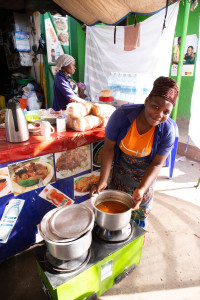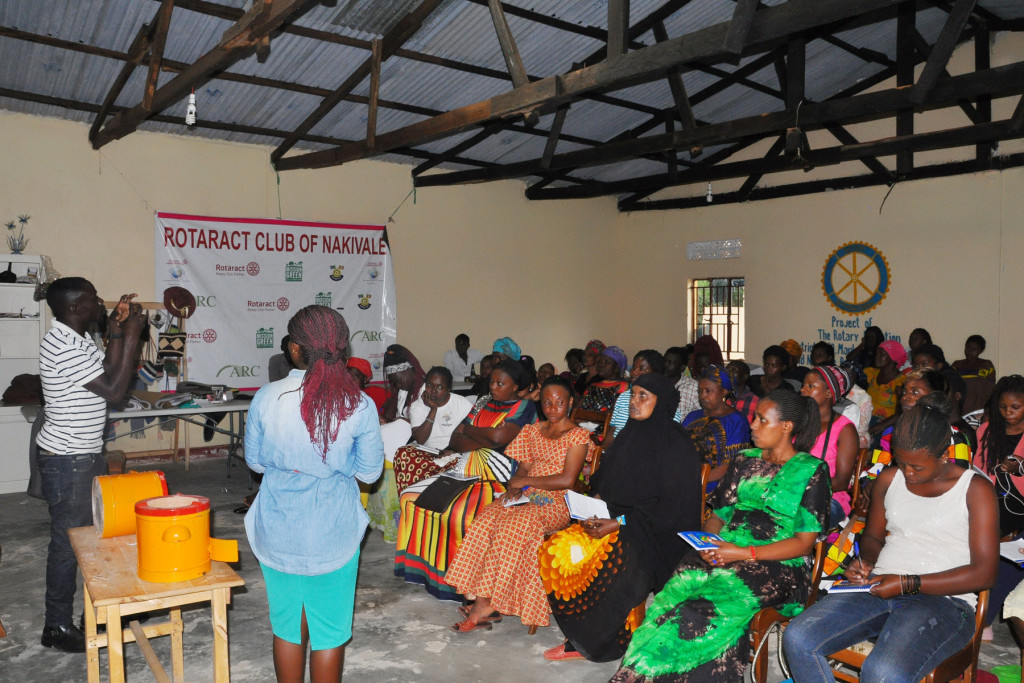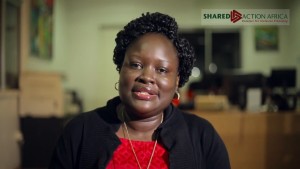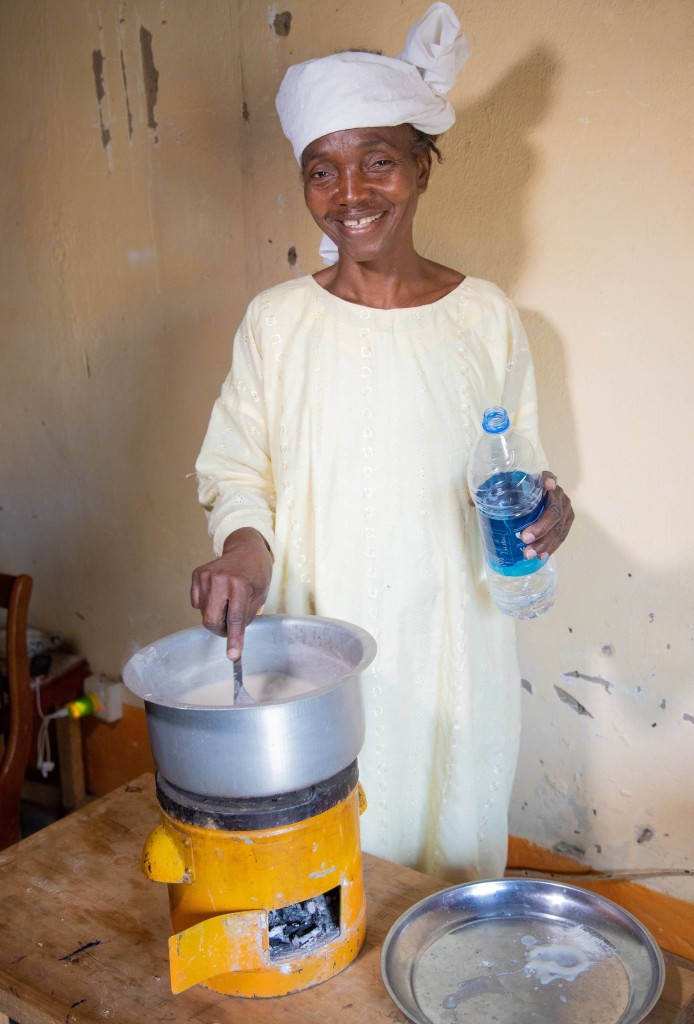The Path to Empowerment: Linking Reproductive Health and the Environment
Mar 7th, 2020 | By admin | Category: Reproductive Rights/Women's RightsBy Suzanne York.
It’s a shame, given all the depressing and negative stories that drive the news cycles, that there isn’t a high-profile channel or platform dedicated only to positive actions.
As the world celebrates International Women’s Day on March 8th, there is no better time to show how women are changing the world for the better. This by no means discounts the efforts of many men, but women undertaking individual-community-global changes that improve the lives of the majority are too often given little attention, unless perhaps your name happens to be Oprah.
Here’s one attempt at conveying an uplifting story about work taking place in East Africa, one impacting an often overlooked community – that of women refugees.
Shared Action Africa (SAA) is a Ugandan-based organization founded by Evelyn Nassuna, a Ugandan lawyer. It started in 2014 with a focus on expanding the use of financial services for rural women; today they have expanded to serve refugee women in Nakivale Refugee Settlement in southwestern Uganda.
In an interview with Evelyn, she explained how working with women refugees came about for SAA:
We expanded our services to Nakivale refugee settlement because refugees form part of the 48% of Ugandans excluded from accessing formal financial services because they are considered a “flight risk” by financial institutions. Lack of access to formal capital impedes refugee and host communities in Nakivale refugee settlement from starting businesses to generate income. Limited financial resources in the refugee settlement has resulted in overuse of the environment.
For example, trees are cut down to create shelter, farmland and wood fuel at a higher rate than the environment can naturally replenish. This causes the refugees, often women and children, to search for resources increasingly further away from their homes, putting them at increased risk of violent attack. In addition, reliance on traditional biomass sources results in the release of harmful indoor air pollutants affecting the health of mostly women and children, with carbon emissions contributing to climate change. These problems combine to increase pressure on household finances, thus reducing the quality of life for refugee women and their families. These challenges sparked us to begin our integrated financial services and environmental programs in Nakivale refugee settlement in 2017.
Why women and climate?
Climate change impacts women disproportionally more so than men. In most countries around the world, women are the main providers of food, water, fuel and other resources for their families. They are the ones working the agricultural fields, fetching water, going to market and selling goods. When women are empowered, they can better support their families, manage resources, and more successfully adapt to climate impacts.
How is climate change impacting the women in Nakivale? Evelyn says that the women refugees experience climate change in various ways, such as prolonged dry spells, droughts, erratic rains, strong winds, and higher air temperatures. They also confront scarcity of wood fuel and end up walking longer distance to gather firewood, skipping cooking meals, or using other resources to cook.
The Connection Between Climate, Environment and Family Planning
Fortunately, Evelyn and Shared Action Africa understand that issues are connected and that in addition to helping women overcome climate and environmental challenges, addressing their need for reproductive health is also imperative. Evelyn said that after operating in the community for a couple of years, they began to hear from women and youth about their struggles with reproductive health:
We observed that the contraceptive prevalence rate (CPR) is 21.8% in Nakivale refugee settlement, compared to the national average rate of 24%, thus increasing the likelihood of unwanted pregnancies among refugee women and youth. They shared that they lacked adequate information on available short-term and long-term family planning services in the refugee settlements. Consequently, they travelled long distances to the closest health facility to access family planning services, and often when they got to the health facilities, the latter would be experiencing stock out of family planning commodities. Likewise, the health workers shared that they needed training on how to administer some of the family planning methods in order to provide quality services to clients. Against this background, SAA piloted a project that integrated family planning and natural resource management access with informal financial service groups composed of refugee women and youth in Nakivale refugee settlement in southwestern Uganda.
Shared Action Africa implemented a community development approach that leverages community-based financial organizations such as savings and lending groups to provide access to financial services, integrated with family planning services and distribution of energy savings cookstoves.
According to Evelyn, communities in need benefit mostly from a holistic approach that addresses multiple issues related to incomes, education, health care, food security, housing and energy among others. Combining access to financial services and business skills development with family planning, Evelyn emphasized, “reduces pressure from unwanted pregnancies, increases household incomes and savings and increases the quality of life for refugee households while availing funds for investment in future needs.”
Changing Lives One Cookstove at a Time
With their work on financial empowerment, reproductive health and clean cookstoves, Share Action Africa is changing lives. Evelyn describes their impact:
SAA contributes to mitigating the damage by supporting the minimization of tree cutting, which in turn facilitates energy conservation through offering alternative sources of fuel. This is achieved through the distribution of energy efficient cookstoves to women and young adults in Nakivale refugee settlement in collaboration with two refugee women led community-based organizations namely, Pathways to Hope Africa and Terehe Mbutho SACCO. In 2019, SAA, in partnership with these community organizations, distributed 50 energy cookstoves with the support of Global Greengrants. The recipients of the energy efficient cookstoves were trained on the use and maintenance of the cookstoves, and also received training on business skills.
In a world of increasingly severe climate impacts that is already experiencing a rise in the number of climate refugees, the work of the women of Shared Action Africa should provide hope that change is happening right now. You can see that on the face of the refugee pictured above with her energy efficient cookstove. Her life has improved and she’s reducing her impact on the environment at the same time. It’s what we need to hear more of in the face of constant negative news.
Suzanne York is Director of Transition Earth.
[Photos from Shared Action Africa]




